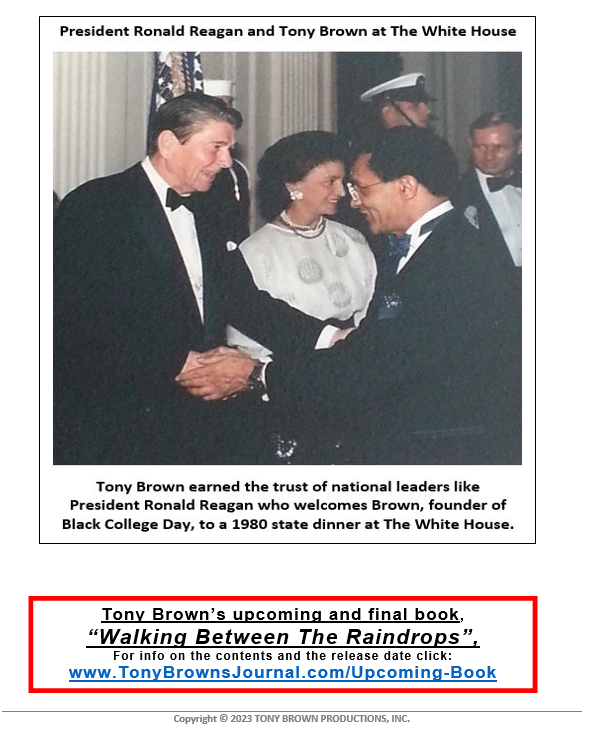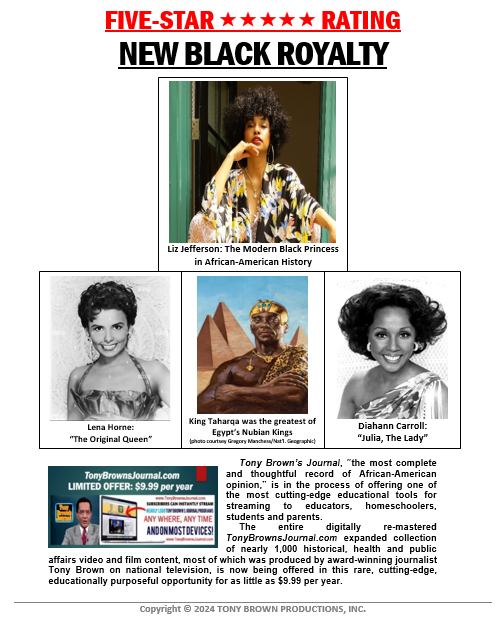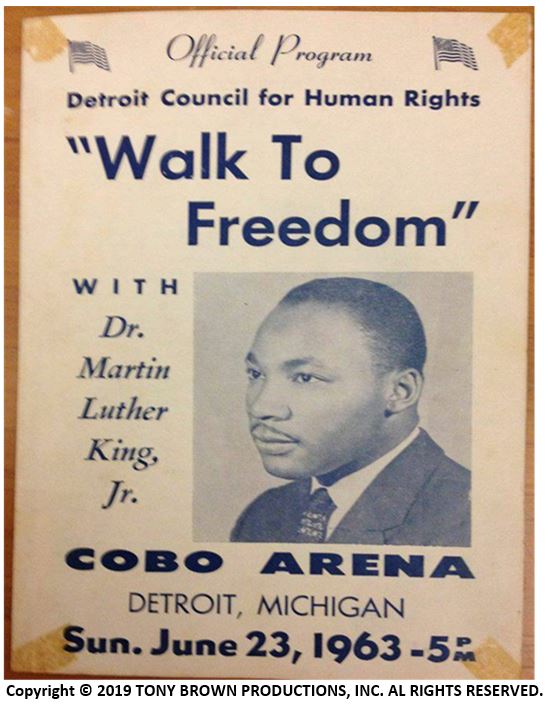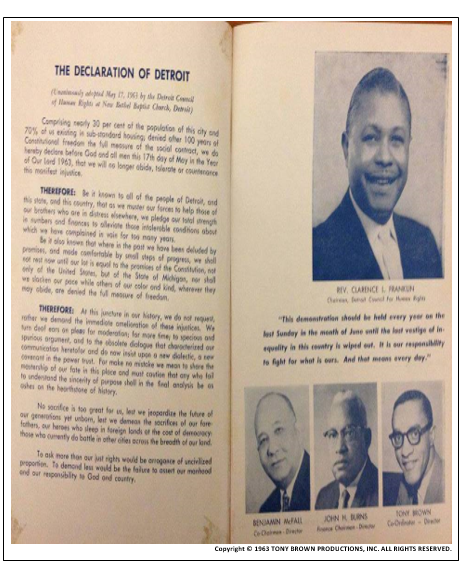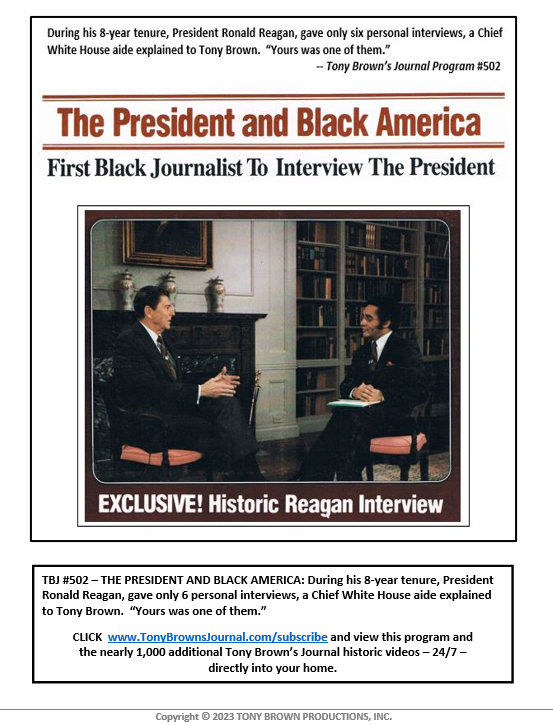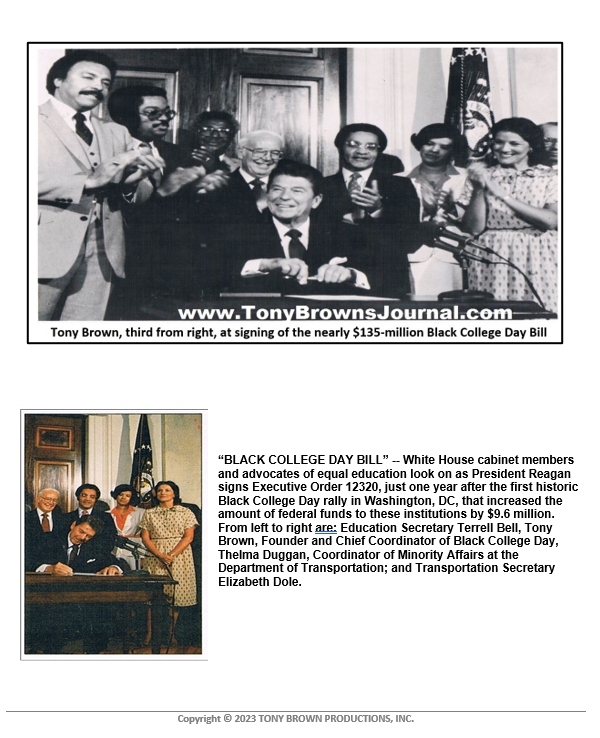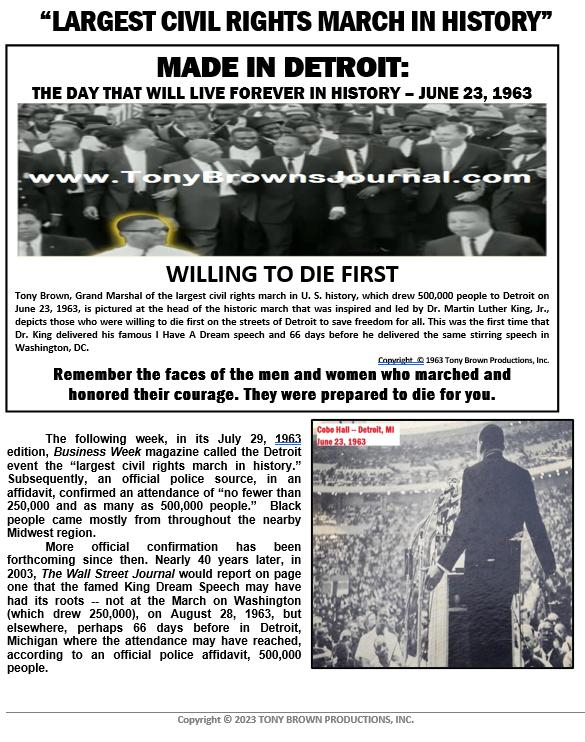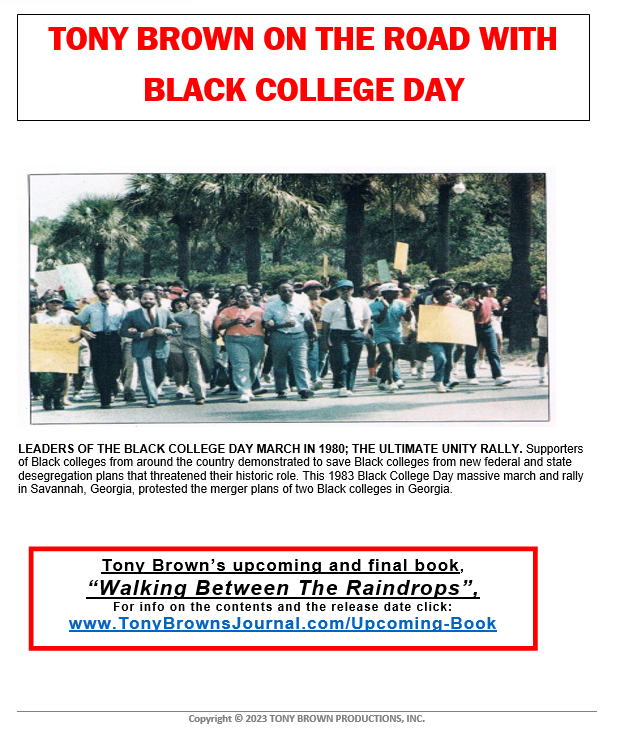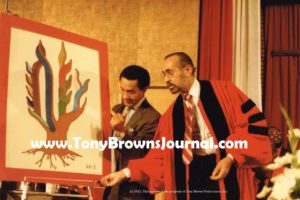 The music of the Black religious experience is the primary root of all music born in the United States. The Revered Dr. Wyatt Tee Walker, aide to MLK and university scholar, musically demonstrates with a 100-member choir, on Tony Brown’s Journal show #827 & 829 (The Roots of Music and The Music Tree), how Black Americans wrote their true history in musical notes and explains how Black music made American music.
The music of the Black religious experience is the primary root of all music born in the United States. The Revered Dr. Wyatt Tee Walker, aide to MLK and university scholar, musically demonstrates with a 100-member choir, on Tony Brown’s Journal show #827 & 829 (The Roots of Music and The Music Tree), how Black Americans wrote their true history in musical notes and explains how Black music made American music.
It is an understatement to note that there is little public awareness of the crucial role of Black sacred music in the development of the broad variety of American popular music. On the strength of this fact alone, its preservation and respect should be guaranteed. However, there is greater significance to the fact that the music of Black religious life serves as an indispensable support system for the establishment, growth and continuity of the Black Church, the institution of dominant influence in the life experience of Black Americans in the United States.
Black sacred music began, grew, developed, and expanded in the “invisible church” of the antebellum slave society. This disclaimer is crucial in order to understand that those of the slave community came by the influence of the Watts hymns while they were developing their own music. The slaves’ use and development of the Spiritual form provided the New World Africans’ unique imprint on the meter music that came to ascendance in the latter days of slavery.
The Spirituals are the heart music of all other American music. They are the taproot of the musical expression of the Black religious experience. Some specialists bicker about the accuracy of calling the music spawned in pre-Civil War “Spirituals.”
In Somebody’s Calling My Name, Dr. Wyatt Tee Walker has met a long-standing need by making available the history of Black people in America in terms of their music. Others have suggested this relationship, but memory does not recall anyone who has presented the music of American Black people as a clue to their history, or vice versa, with the thoroughness which marks Somebody’s Calling My Name.
Dr. Walker brings to his task an almost incomparably broad and varied background and talents every bit as diverse and rich as have been his experiences. He was a crucial part of Dr. Martin Luther King’s crusade for freedom; he was a successful pastor, a preacher of notable endowments, and enjoys a talent for singing with mover power the songs of hope and sorrow about which he writes so engagingly in his book “Somebody’s Calling My Name.”
One will not soon forget his meticulous tracing of the “roots” in Africa of American Black music.
As a whole volume suggests, we have in the interpretation which slaves and their children gave to Christian faith a modern “glossolalia,” where the masters said the Bible declared one thing and the slaves heard something far different about what the Bible declared. The owners spoke of slavery being “God-ordained”; the slaves heard, “Before I’d be a slave, I’d be buried in my grave.”
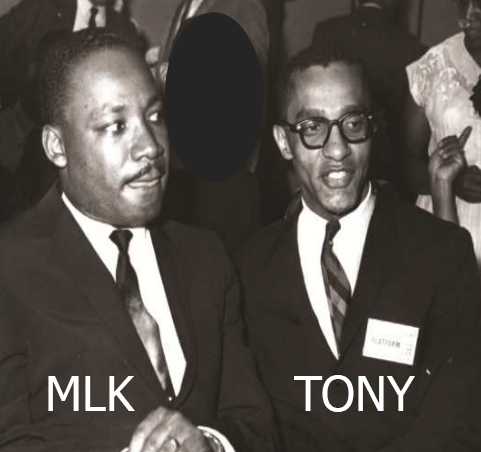 Historically, TONY BROWN IS also … Coordinator of the “Walk To Freedom with Martin Luther King, Jr.” in Detroit (1963), according to the July 29, 1963 edition of Business Week magazine, “the largest civil rights march in history.”
Historically, TONY BROWN IS also … Coordinator of the “Walk To Freedom with Martin Luther King, Jr.” in Detroit (1963), according to the July 29, 1963 edition of Business Week magazine, “the largest civil rights march in history.”
- WINNER of the prestigious Silver Circle Award from the National Academy of Television Arts & Sciences
- Dean Emeritus and Professor, Scripps Howard School of Journalism and Communications, Hampton University
- First and Founding Dean and Professor, School of Communications, Howard University
- Founder, BLACK COLLEGE DAY, 1980
- 2015-2016 National Association of Black Journalists Hall of Fame Inductee
- Black Emmy Nominee – 1989 Special Recognition Award Winner
- Distinguished Visiting Professor, Honorary Degree – American University, Paris, France
- Distinguished Visiting Professor, Central Washington University, Ellensburg, WA
- Talker’s, Radio Trade Magazine: Selected as “One Of The 100 Most Important Radio Talk Show Hosts In America”
- “Tony Brown Chicago,” WLS-AM Radio (Chicago)
- “Tony Brown,” WLIB-AM Radio (New York)
- “Tony Brown at Daybreak,” WRC-TV (Washington, DC)
- “Tony Brown’s Journal”/“Black Journal” (TV series: 1968-2008): “The Most Complete and Thoughtful Record of AFRICAN-AMERICAN OPINION.” U. S. Army 272 field artillery (s-1 Intelligence) battalion AND cadre (1953-1955), Honorable discharge, 1955. Neu-Ülm, GERMANY (DR. ALBERT EINSTEIN’S BIRTHPLACE).
BLACK HISTORY Great Events In African-American History
- Tony Brown Donates $100,000 to Hampton University Scholarship Fund and sows the seeds of success for future journalists www.TonyBrownsJournal.com/blog/Tony-Brown-Donates-100k
- Tony Brown with Hampton University Journalism Students Make History At The New York Times Harvard, Columbia, Syracuse Place Second In Competition www.TonyBrownsJournal.com/blog/Tony-Brown-With-HU-Makes-History

